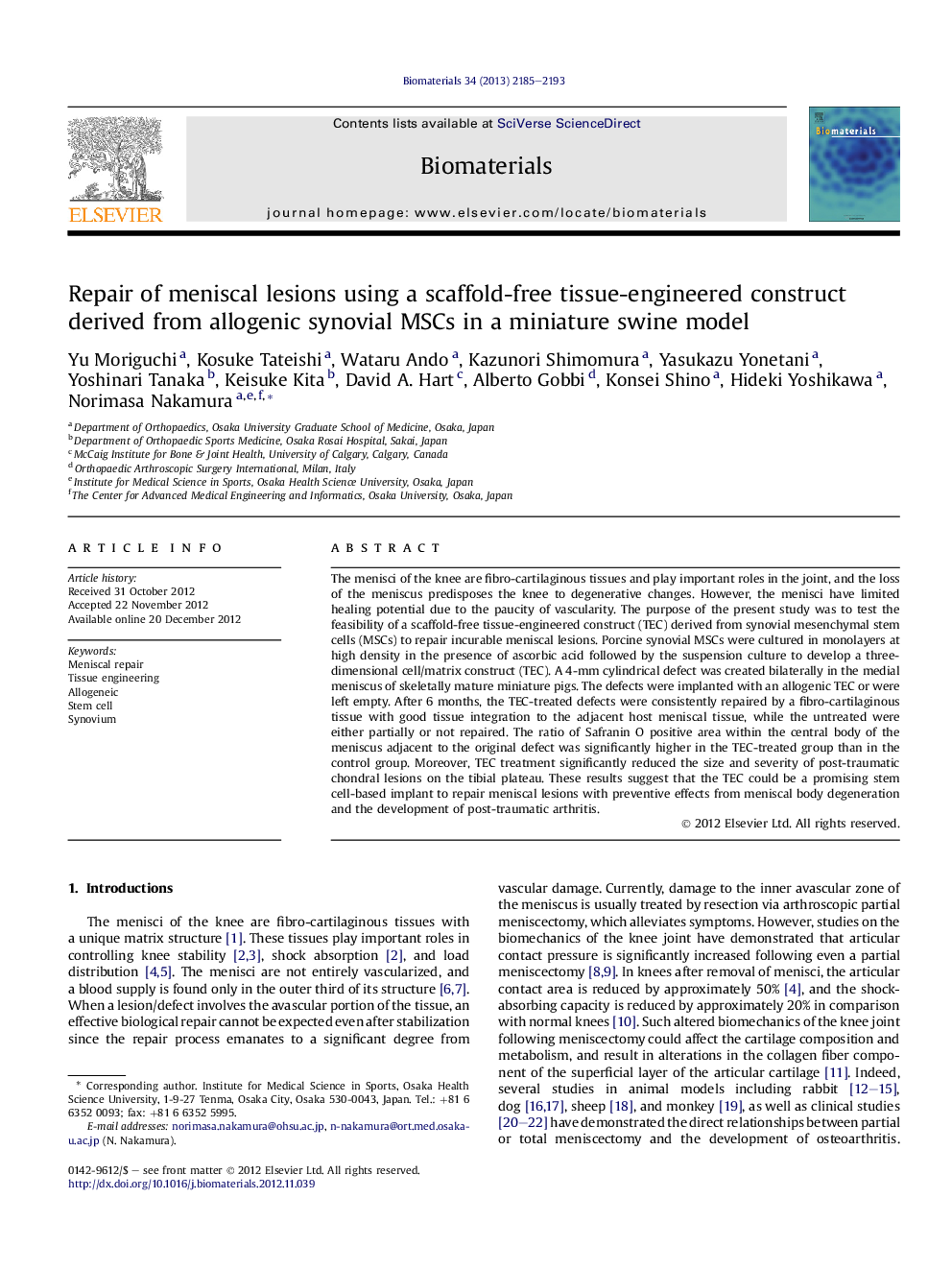| Article ID | Journal | Published Year | Pages | File Type |
|---|---|---|---|---|
| 10228843 | Biomaterials | 2013 | 9 Pages |
Abstract
The menisci of the knee are fibro-cartilaginous tissues and play important roles in the joint, and the loss of the meniscus predisposes the knee to degenerative changes. However, the menisci have limited healing potential due to the paucity of vascularity. The purpose of the present study was to test the feasibility of a scaffold-free tissue-engineered construct (TEC) derived from synovial mesenchymal stem cells (MSCs) to repair incurable meniscal lesions. Porcine synovial MSCs were cultured in monolayers at high density in the presence of ascorbic acid followed by the suspension culture to develop a three-dimensional cell/matrix construct (TEC). A 4-mm cylindrical defect was created bilaterally in the medial meniscus of skeletally mature miniature pigs. The defects were implanted with an allogenic TEC or were left empty. After 6 months, the TEC-treated defects were consistently repaired by a fibro-cartilaginous tissue with good tissue integration to the adjacent host meniscal tissue, while the untreated were either partially or not repaired. The ratio of Safranin O positive area within the central body of the meniscus adjacent to the original defect was significantly higher in the TEC-treated group than in the control group. Moreover, TEC treatment significantly reduced the size and severity of post-traumatic chondral lesions on the tibial plateau. These results suggest that the TEC could be a promising stem cell-based implant to repair meniscal lesions with preventive effects from meniscal body degeneration and the development of post-traumatic arthritis.
Related Topics
Physical Sciences and Engineering
Chemical Engineering
Bioengineering
Authors
Yu Moriguchi, Kosuke Tateishi, Wataru Ando, Kazunori Shimomura, Yasukazu Yonetani, Yoshinari Tanaka, Keisuke Kita, David A. Hart, Alberto Gobbi, Konsei Shino, Hideki Yoshikawa, Norimasa Nakamura,
